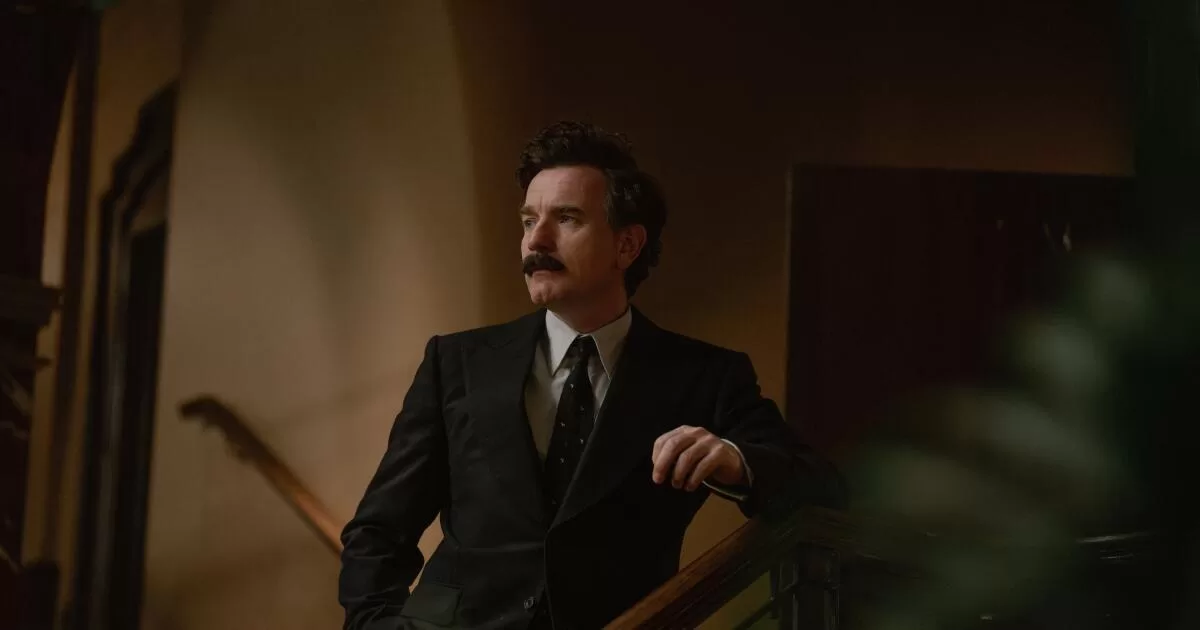Heartbreaking, heartwarming, sometimes heart-stopping, and as much as anything the stage for a wonderful performance by its star, Ewan McGregor, it collects characters who are flush with emotion but — for reasons political, personal, cultural or as a matter of self-preservation — don’t demonstrate it openly. The production, too, maintains that tension between feeling and restraint, which ultimately intensifies the feeling.
McGregor plays Count Alexander Ilyich Rostov, who, having returned to Russia from Paris in the wake of the 1917 revolution — he “missed the climate,” he tells a Bolshevik tribunal — is saved from a firing squad by virtue of a famous “pre-revolutionary” poem that bears his name. “It is attributed to me, yes,” he tells his inquisitors. And so he is sentenced to lifetime house arrest in the luxurious (actual, still operating) Hotel Metropol, his current place of residence, though he is moved from his plush suite into a bare attic room. (He’s still allowed to eat in the restaurant and drink at the bar.)
That is the whole of the premise, really, and almost the series’ sole setting, as, from 1922 to 1958, with large tracts of time skipped over, characters come into and out of the Count‘s small world — which, with its other rooms, and nooks and crannies, proves not such a small world after all.
Though he has fixed ideas about what constitutes proper behavior, the Count (who will become simply “Alexander”) is not a snob, and forced to rely on himself, he becomes self-reliant. Being raised to appreciate life’s finer things will prove the basis for appreciating the simpler things. Though he has his dark moments, he will be pulled back from the brink and integrate himself into the downstairs life of the hotel without losing himself. Rather, he finds himself. “It is the business of times to change, Mr. Halecki,” he says to the genial hotel manager (Rob Jarvis), “and gentlemen to change with them.”
Even so, it’s a largely stable world these characters inhabit. While things change over the decades within and without the walls of the Metropol — people grow up or grow old, rulers die and are replaced, relationships deepen among characters and characters relate differently to their circumstances — life goes on. Which is not to say it isn’t a story with a beginning, a middle and an end.
Underpinning the intrigue is a love story, or stories, individual and collective. (It’s a healthy, not an enforced, collectivism.) Among the Count’s more significant relationships are Anna Urbanova (Mary Elizabeth Winstead), a movie star who swans in and out of the Metropol with her assistant, Olga (Anastasia Hille), and Mishka Mindich (Fehinti Balogun), a friend from college, now involved in revolutionary politics. Johnny Harris plays Osip Glebnikov, a secret police officer of some depth; John Heffernan is Bishop, a loyal party member who has none, and will rise through the hotel’s ranks over the years. Beyond the state apparatus itself, he’s the series’ designated villain.
Most crucial to the overarching plot are two little girls — the Count has a way with children, and they have a way with him — left implicitly and explicitly in his care: Nina (Alexa Goodall), who knows every inch of the hotel (she has a passkey) and, later, Sofia (Billie Gadson, younger; Beau Gadson, older). These actors are accomplished beyond their years.
The series does not perfectly re-create the book. It expands some roles, alters others and replaces some motivational backstory with more dramatically obvious, relatively labored backstory; it loses scenes, adds a few and skips long discussions of Russian character, culture and history (and American film noir). But the journey is the same, and the largely subdued, fanciful, almost fairy-tale atmosphere of the series matches that of the novel.
The story is in no sense a petition for the return of the monarchy but contrasts Old World gentility with the heartlessness of the surveillance state, culture against the assassination of culture. (It’s helpful to remember that the Soviet Union was not a place one could leave, but only escape from.) That oppressive presence means that, even as the series is largely subdued — there are crises that require action, and moments of great suspense, handled without melodrama — the tension never quite dissipates. That’s how it is when characters you come to love live under a shadow.
